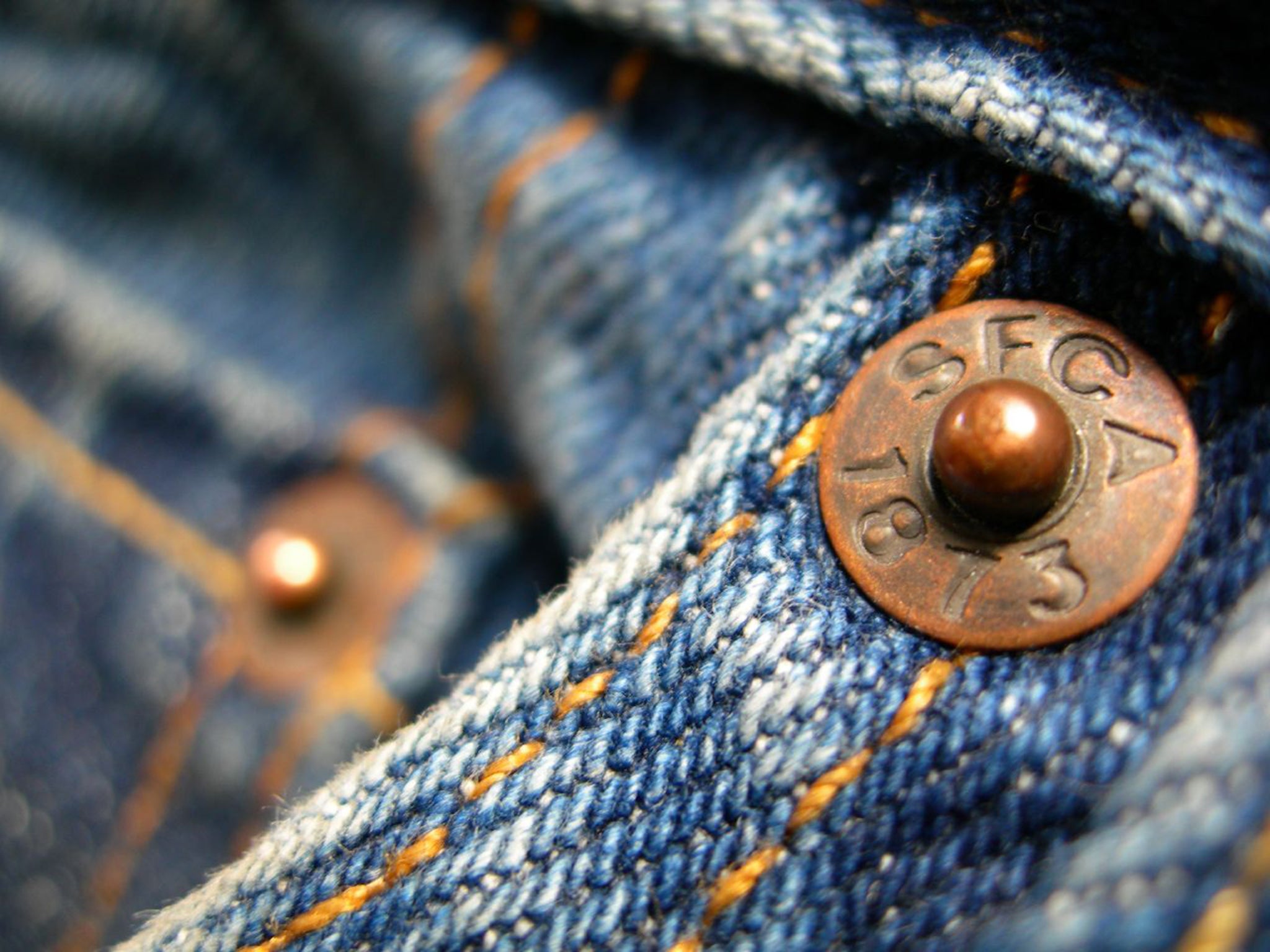Those tiny bits of metal on the pockets of your jeans are actually really important
Without them your jeans would be full of holes

The tiny metal round things on the pockets of jeans may have escaped most people’s notice.
Known as ‘rivets’, they are placed on areas of the jeans that are most likely to be pulled apart by strain or movement and help hold the fabric together, thereby making them last longer.
But their contribution to the history of denim - and how it acquired its massive popularity - is more interesting. In fact, they led to the creation of "jeans".
In the 1870s, labourers wore denim as they worked but the physical labour caused their trousers to fall apart quickly.
For this reason, the wife of a labourer went to Jacob Davis, a tailor, and asked if he could create a pair of denim work trousers that would not disintegrate quicte so easily.
Mr Davis came up with the idea of putting rivets on the areas that endured the most strain, such as pocket corners and the base of the fly. The rivets helped hold the fabric together, and meant the trousers were less likely to tear.
With his riveted trousers an instant hit among workmen, Mr Davis needed a business partner, and contacted a certain Levi Strauss, who was a dry goods merchant at the time and had sold Mr Davis the fabric to make his trousers.
The two men received a patent on the design in 1873, and the riveted trousers became a huge success – though they only took the name ‘jeans’ during the 1960s.
In pictures: Roughed-up denim
Show all 4Though denim trousers had been used for years previously, it was the creation of rivets that led to the making and selling of what we now refer to as ‘jeans’.
Subscribe to Independent Premium to bookmark this article
Want to bookmark your favourite articles and stories to read or reference later? Start your Independent Premium subscription today.

Join our commenting forum
Join thought-provoking conversations, follow other Independent readers and see their replies